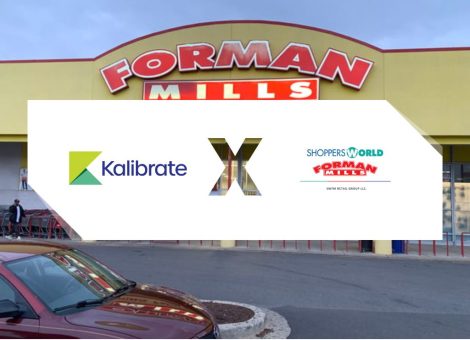Loyalty or data: Which comes first?

One of the most thought-provoking education sessions at this year’s NACS Show, was “The Future of Loyalty: Unlocking Enhanced Customer Experiences,”. Presenter, Tom Fleming, shared eye-opening insights about the state of loyalty programs worldwide.
Among the standout statistics was the revelation that, on average, consumers are enrolled in 18 different loyalty programs but only genuinely care about three or fewer. This suggests that a huge proportion of retailer loyalty programs aren’t effective. Fleming highlighted that a significant portion of customers are dissatisfied with the loyalty programs they’re part of — 84% in Japan, 79% in the USA, and 72% in France.
These figures raise some important question for retailers:
- Is your loyalty program delighting your customers or are they left dissatisfied?
- Are you just offering discounts to consumers that would come by anyway?
- What comes first—loyalty or data?
The conventional approach: Loyalty first, data later
Many retailers launch loyalty programs with the aim of collecting valuable customer data. The logic is simple: get customers to sign up, track their behaviors, and use that data to make informed business decisions. In exchange for their loyalty, customers often receive discounts, points, or rewards to incentivize repeat purchases.
On the surface, this seems like a win-win. Retailers get a wealth of data, and customers receive perks for sticking with the brand. But if retailers are only using loyalty programs as a vehicle to collect data, without addressing the underlying customer experience, the result is often a disconnect between what businesses offer and what customers truly value. Offering reduced prices to disinterested or frustrated customers doesn’t foster loyalty.
A better approach: The customer comes first
Understanding your customers should come first.
By gathering and understanding real customer insight first, you can design a loyalty program that truly resonates with your audience and drives genuine engagement.
This means using data — not just from loyalty programs but from multiple sources across different touchpoints across the customer journey — to develop a comprehensive understanding of your audience. Who are they? What motivates them? What challenges do they face? Why are they choosing to shop with you? What do they value in a shopping experience? Which other retailers do they frequent?
Through answering these questions first, retailers can craft loyalty schemes that go beyond superficial discounts and deliver real value.
Data as a tool, not the end goal
Data shouldn’t be treated as the goal of a loyalty program. Data is a tool to better understand and serve your customers, not the reason for engaging with them in the first place. And loyalty schemes are not the only means of gathering customer data.
Retailers should aim to create loyalty programs that are customer-centric, using data to enhance the overall experience rather than simply tracking behaviors for the sake of it. When customers feel that their needs are understood and their loyalty is valued, they are more likely to engage with the brand, which in turn generates even more meaningful data. This creates a virtuous cycle, where loyalty leads to better customer insights, and those insights lead to a more refined and effective loyalty program.
The key to success: Delight your customers
At the heart of any successful loyalty program is one simple concept: delighting your customers. A great customer experience is the foundation upon which all loyalty programs should be built. If customers feel valued, understood, and rewarded in meaningful ways, loyalty will follow.
This is where the distinction between collecting data and using data effectively becomes crucial. A loyalty program designed purely to gather information will likely leave customers feeling like a number. But a program that uses data to deliver personalized, relevant experiences will leave customers feeling genuinely loyal to your brand.
As Tom Fleming’s statistics suggest, most consumers are inundated with loyalty programs, but only a few stand out as truly valuable. The key to creating a standout loyalty program is to focus on quality over quantity. Instead of trying to offer everything to everyone, focus on delivering exceptional experiences to the customers who matter most to your business.
Final thoughts
At Kalibrate, we encourage retailers to take advantage of the multitude of customer data that is out there (whether they have a loyalty scheme or not). Demographics, psychographics, journey analysis, and sales data are just a handful of the data layers that retailers are analyzing to build a better understanding of their customer base.
Once you truly understand what your specific customers need and value, you can design a loyalty program that genuinely delights them, builds long-term loyalty, and leads to richer, more actionable data.
The future of loyalty isn’t about collecting the most data—it’s about using data to create the best possible experience for your customers. When you focus on delighting your customers, loyalty will grow naturally, and the data you collect will be more valuable than ever.
Learn more about customer profiles
See how Kalibrate Location Intelligence combines, compiles and analyzes customer data to drive winning customer centric strategies.
Read more articles about:
Location intelligenceSubscribe and get the latest updates
You may unsubscribe from our mailing list at any time. To understand how and why we process your data, please see our Privacy & Cookies Policy
Related posts
Fuel pricing
November 2025. Kalibrate's Canadian Petroleum Price Snapshot
Kalibrate conducts a daily survey of retail gasoline, diesel, propane, and furnace fuel prices in 77 Canadian cities....

Location intelligence
Forman Mills accelerates growth with the Kalibrate Location Intelligence platform
The value apparel and home goods retailer selects Kalibrate to to support its national expansion strategy.


